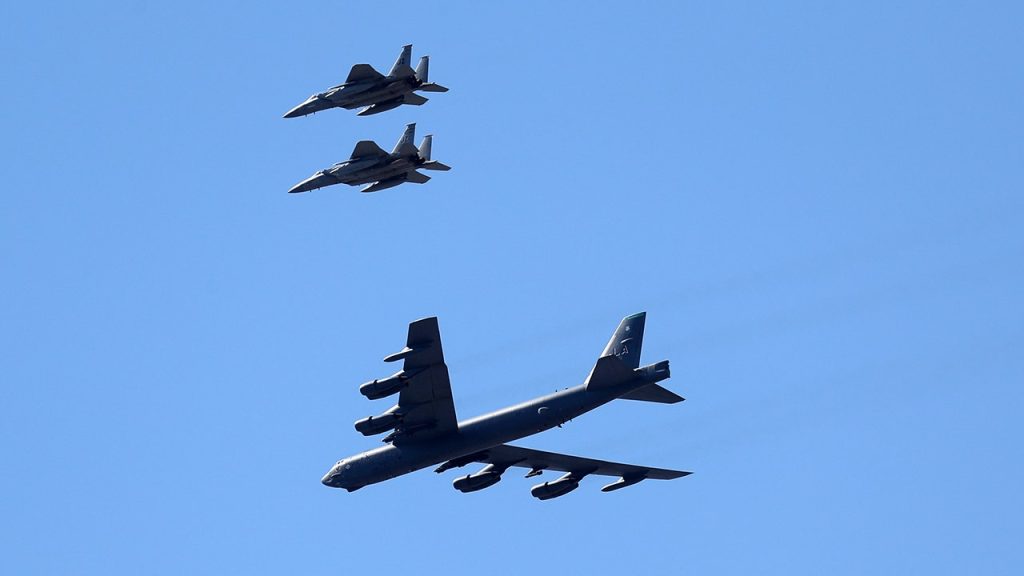On Monday, August 21, 2023, the United States Central Command (CENTCOM) executed a precision airstrike in eastern Syria, targeting a vehicle transporting weapons and eliminating two operatives of the Islamic State of Iraq and Syria (ISIS) while injuring a third. This operation, conducted in the Dayr az Zawr Province, underscores the ongoing commitment of the U.S. military and its regional partners to counter the persistent threat posed by ISIS and other terrorist organizations. The province, a former stronghold of ISIS and later subject to shifting control between Syrian regime forces and Russian influence, remains a strategically significant area in the fight against terrorism. The successful targeting of the weapons shipment directly disrupts ISIS’s operational capabilities, hindering their ability to plan and execute attacks against civilians and military personnel both within the region and potentially beyond.
This targeted strike represents a continuation of the U.S. strategy to degrade ISIS’s capabilities and maintain pressure on the terrorist group, preventing its resurgence and limiting its ability to destabilize the region. While ISIS lost its territorial control in Syria and Iraq in 2019, remnants of the group continue to operate in remote areas and conduct sporadic attacks. The persistent nature of the ISIS threat necessitates ongoing vigilance and proactive measures to counter their activities and prevent the regrouping of their forces. The airstrike demonstrates the U.S. commitment to partnering with regional forces to address the evolving security challenges posed by terrorist organizations and maintain stability in the region.
The Dayr az Zawr Province, located along the Euphrates River Valley, has historically been a contested area, experiencing shifting control between various actors including the Syrian regime, Russian forces, and ISIS. Its strategic importance lies in its proximity to key transit routes and resources, making it a focal point for various competing interests. The U.S. airstrike in this region highlights the ongoing efforts to prevent ISIS from exploiting the complex security landscape and re-establishing a foothold in the area. By actively targeting ISIS operatives and disrupting their logistical networks, the U.S. and its partners aim to deny them the space to operate and plan attacks.
The statement released by CENTCOM emphasizes the collaborative nature of the counterterrorism efforts, highlighting the importance of partnerships with regional forces in addressing the shared threat posed by ISIS. This collaborative approach is essential for effective intelligence sharing, coordinated operations, and building local capacity to counter terrorism. By working with regional partners, the U.S. aims to foster long-term stability and security in the region, empowering local forces to take ownership of counterterrorism efforts and prevent the resurgence of extremist groups.
The ongoing presence of ISIS, albeit in a fragmented form, necessitates continuous monitoring and proactive measures to counter their activities. While the successful elimination of ISIS operatives and the destruction of their weapons represent a significant tactical victory, the underlying conditions that allow for the persistence of such groups require a comprehensive and sustained approach. This includes not only military action but also addressing the socio-economic factors that contribute to radicalization and recruitment, promoting good governance, and fostering inclusive societies.
In conclusion, the U.S. airstrike in Dayr az Zawr Province represents a significant operational success in the ongoing fight against ISIS. The elimination of ISIS operatives, the destruction of their weapons, and the disruption of their logistical networks contribute to degrading their capabilities and preventing them from carrying out attacks. However, the persistent threat posed by ISIS and other extremist groups requires a sustained and multifaceted approach that encompasses military action, intelligence sharing, regional partnerships, and addressing the root causes of terrorism. The U.S. commitment to working with its partners in the region is crucial for achieving long-term stability and security and preventing the resurgence of these dangerous groups.

